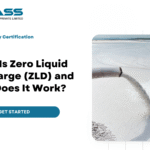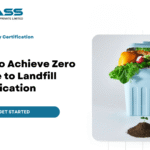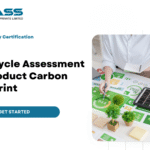How Many Categories of ISO Certification in India?
February 8, 2022 2024-12-12 11:44How Many Categories of ISO Certification in India?
An Overview by Team IRQS - ISO Certification Body
ToggleIn today’s competitive marketplace, businesses want to be known for adhering to quality assurance and manufacturing standards. Thus, to promote product compatibility, enhance credibility and trust among customers, stakeholders, and business partners, international experts agreed upon a collection of different ISO (International Organization for Standardization) standards that lay down the best practices for organizations to follow.
ISO refers to a non-governmental system of national agencies that sets forth international standards for government and different types of business. Organizations that follow laid-down ISO standards are given an ISO certification as proof of their compliance with the standards.
Types of ISO Certifications in India
There are different categories of ISO certifications in India. They include:
ISO 9001 – Quality Management Systems
Regarded as the world’s most recognized Quality Management System (QMS) standard, ISO 9001 sets the standards for building a framework that ensures consistent and continual high quality in the provision of products and/or services.
Based on seven quality management principles, ISO 9001 encourages organizations to become more professional, maintain a strong customer focus, and strive for continual improvement in their products and/or services.
ISO 13485 – Medical Device QMS
ISO 13485 sets specific quality standards for different stages of medical device production, including sourcing of materials, distribution, design, and sterilization, among other functions.
Its benefits lie in helping medical device manufacturing companies to achieve faster lifecycle times, ensure waste reduction, drive systematic process improvement, achieve higher customer satisfaction, and earn a higher reputation. When an organization becomes ISO13485 certified, it will enhance its competitive advantage in the marketplace.
ISO 14001 – Environmental Management Systems
An internationally agreed standard, ISO 14001 sets out the requirements for an environmental management system. An environmental management system helps organizations to take into consideration all environmental issues relevant to their operations like water and sewage issues, air pollution, waste management, etc. It also helps them identify, manage, monitor, and control their environmental issues, in a holistic manner.
This helps organizations to improve their environmental performance through more effective use of the available resources and reduction of waste. As a result of this, they will gain a competitive advantage and earn the trust of their stakeholders.
ISO 45001 – Occupational Health and Safety
An internationally applied British Standard for occupational health and safety management systems (OHSMS), ISO 45001 sets standards for organizations to control their work-related health and safety hazards, and enhance their performance, through proper planning, documentation, and implementation of a verifiable method. This helps in reducing and eliminating workplace hazards, leading to improved health and safety.
It is beneficial for all organizations of all types and sizes and can be adopted regardless of the nature of their business in the public or private sector.
ISO 50001 – Energy Management Systems
It is an excellent framework used by organizations to manage and reduce energy use and costs. From large to smaller organizations across the world, the standard offers the opportunity to become more resilient as opposed to energy costs and availability.
Whether you’re interested to reduce costs, complying with legislation, or increasing your sustainability, implementing the ISO 50001 is the solution to achieving all three.
ISO 26000 – Social Responsibility Guidance Standard
Established in the year 2010, ISO 26000 sets international standards for social responsibility. The standard details the fundamentals and guidelines for the concept of social responsibility. This helps organizations to adopt the right approach relating to their mission and vision, operation, processes, employees, communities, customers, and stakeholders, effectively.
By guiding organizations on social responsibility, ISO 26000 encourages them to act ethically, responsibly, transparently, and efficiently in a way that benefits the welfare of society.
ISO 28000 – Supply Chain Security Management System
ISO 28000 sets the best practice standards for the supply chain management. This helps organizations with global supply chains to recognize the level of threats they may face. It also helps them to assess their risks and determine if proper security measures are in place to protect their properties from any potential threats.
ISO 28000 also offers them a framework to improve upon their weak areas and address the requirements of a Security Management System (SMS) for their supply chain.
ISO 22000 – Food Safety Management Systems
ISO 22000 lays down the standards for food safety management systems. It details what organizations must do to exhibit their commitment to control food safety hazards and ensure that the food they produce is safe for human consumption.
It helps organizations to streamline their food safety management system; implement safety checks at every level of the food management process; reduce food-borne diseases, harmonize their food standards; and facilitate robust food safety. Overall, it is suitable for every organization in the food industry, irrespective of its location and size.
ISO 27001 – Information Security Management Systems
ISO 27001 is the best practice framework for an information security management system (ISMS) and is one of the most popular information security management standards worldwide. It specifies a set of best practices and sets out the security controls that can help manage information risks related to policies, procedures, and staff training.
ISO 27001 takes into account a risk assessment process, organizational structure, information classification, information security policies, procedures, monitoring, and reporting guidelines.
Process for ISO Certification in India
The process for obtaining ISO certification in India is given below:
- Choose the type of ISO certification
- Pick a recognized ISO certification body.
- Create an application or contract
- Review of documents related to various policies and procedures
- Know the existing gap and make an action plan
- Initial certification audit – Stage 1 and Stage 2
- Completing the ISO certification
- Surveillance audits
ISO Certification Cost
The cost for getting ISO certification varies from organization to organization, with each organization charged based on different factors like
- Size and the industry sector to which it belongs
- Number of employees it has
- Number of processes involved
- Level of risk management
- Annual revenue
- Number of working shifts, etc.
Time involved in the ISO Certification Process
The time taken for an organization to acquire an ISO certificate depends mainly on the size of the company. For a small company, it takes from 6 to 8 months, for medium organizations it takes from 8 to 12 months, and for large organizations, it takes 12 -15 months.
Conclusion
With a growing number of businesses globally, looking to do business only with ISO-certified companies, there is an increasing demand for getting the organization ISO certified. The whole process is however fraught with obstacles and challenges galore.
This is where IRQS comes in to assist you throughout the journey from initial training to risk management, gap analysis, and the certification process.
If you are planning to get an ISO certificate for your organization, get in touch with the experts at IRQS. We can give you the right guidance and help you stay on the right course to finally acquire the ISO certificate that you are looking for.
Recent Posts
Follow us on
Categories
ISO Certification Body in India | Trusted Certification Experts in India
IRQS is a leading ISO certification body with 25+ years of experience, offering ISO certification and training services to over 5,000 clients worldwide.
ISO 9001 Certification Body - Best Service & Lowest Price
Apply for ISO Certification in India. IRQS is one of the leading Certification bodies that offers internationally recognized ISO certification
Cities we cater for ISO Certifications in India: iso certification in india, iso certification body, iso certification in Mumbai, iso certification in Bangalore, iso certification in Ahmedabad, iso certification in Bhavnagar, iso certification in Kolkata, iso certification in Chennai, iso certification in Delhi, iso certification in Goa, iso certification in Hyderabad, iso certification in Kandla, iso certification in Kochi, iso certification in Pune, iso certification in Bhopal, iso certification in Vadodara, iso certification in Tiruchirapalli, iso certification in Visakhapatnam, iso certification in Port Blair, iso certification in PARADIP, iso certification in Surat, iso certification in JAMNAGAR, iso certification in KAKINADA, iso certification in COIMBATORE, iso certification in TRICHY
By Certification: ISO 9001 certification, Quality Management System (QMS) certification, ISO 14001 certification, Environmental Management Systems (EMS) certification, ISO 45001 certification, Occupational Health and Safety Management Systems (OHSMS) certification, ISO 50001 certification, Energy Management Systems (EnMS) certification, ISO 27001 certification, Information Security Management Systems (ISMS) certification, ISO 27701 certification, Privacy Information Management System certification, FAMI-QS Certification, Feed Additives and Pre-mixtures Quality System Certification, BRCGS certification, Brand Reputation through Compliance Global Standards, IATF 16949 certification, Automotive Quality Management Systems Certification, ISO 22000 certification, Food Safety Management Systems (FSMS) certification, FSSC 22000 Certification, Food Safety System Certification (FSSC) certification, Ayush Certification, Ayush Mark Certification, fssai third party audit, food safety auditing, ISO 21001 Certification, Educational Organization Management System (EOMS) certification, ISO 28000 Certification, Security Management System for Supply Chain (SCSMS) certification, ISO 13485 Certification, Medical Device Quality Management System Certification, SOC 1 Report, SOC 2 Report, IMS certification, integrated management system certification, GDPR Certification, general data protection regulation certification, SOC 2 Certification, SOC 2 Compliance, service organization controls certification, VAPT certification, Vulnerability Assessment and Penetration Testing Certification, ISO 22301 Certification, bcms certification, Business Continuity Management Systems certification
By Sector: ISO Certification for Engineering & Manufacturing, ISO Certification for Automotive, ISO Certification for Health Care, ISO Certification for Food & Beverages, ISO Certification for IT & ITES, ISO Certification for Marine, ISO Certification for Education, ISO Certification for Oil & Gas, ISO Certification for Construction, ISO Certification for Energy, ISO Certification for Retails, ISO Certification for Defence, ISO Certification for Medical Device, ISO Certification for Mining, ISO Certification for Financial Services
By Training: ISO 9001 training, ISO 9001 Lead Auditor Training, QMS training, ISO 14001 training, ISO 14001 Lead Auditor Training, ISO 45001 Training, ISO 45001 Lead Auditor Training, ISO 27001 Training, ISO 27001 Lead Auditor Training, ISO 22301 training, ISO 22301 Lead Auditor training, ISO 9001 Internal Auditor, ISO 14001 Internal Auditor, ISO 45001 Internal Auditor, Integrated Management Systems (IMS) Training, IATF Internal Auditor Training, FSSC 22000 Internal Auditor Training, ISO 22000 Internal Auditor Training, ISO 50001 Internal Auditor Training, ISO 21001 Internal Auditor Training, ISO 13485 Internal Auditor Training, ISO 27001 Internal Auditor Training, ISO 28000 Internal Auditor Training, IRCA accredited training
By Sustainability: esg services, esg solutions, esg certification courses, sustainability certification courses, life cycle assessment certification, sustainable development certificate, life cycle analysis certification, sustainability certification program, sustainability verification & Validation, sustainability report assurance, sustainability assurance, sustainability reporting verification & Validation, sustainable claim verification & Validation, green house emissions & assurance, pas 2050 certification, pas 2050 verification, carbon footprint of products, carbon footprint solutions, iso 14067 certification, iso 14067 verification & Validation, iso 14064 certification, iso 14064 verification & Validation, carbon footprint verification, ghg verification, iso 14064 certification course, iso 14064 lead Implementor training, iso greenhouse gas standards, pas 2060 certification, pas 2060 carbon neutral certification, pas 2060 verification, carbon neutrality standard & certification, carbon neutral verification, carbon footprint management, carbon emission management, pas 2080 certification, carbon management in infrastructure, pas 2080 verification, greenhouse gas emissions management, iso 26000 training, social responsibility management system, csr management system, social responsibility lead implementor, life cycle assessment course, life cycle assessment certification, lca course, life cycle analysis course, life cycle assessment training, iso 14040 training, iso 14044 training, life cycle assessment training program, iso 14064 certification, iso 14064 training, iso 14064 certification course, iso 14064 lead auditor training, iso 14067 training, iso 14067 certification, product carbon footprint lead implementor, ghg accounting, green house gas accounting, lead verifier certification program, iso ghg accounting, sustainability reporting, esg reporting, gri standards, csr reporting, gri reporting standards, global reporting initiative standards, gri sustainability reporting, sustainability reporting in line with gri standards, business responsibility and sustainability reporting, brsr training, iso 20400 training, sustainable procurement awareness, sustainable procurement, iso 27001 lead auditor, iso 27001 lead implementer, iso 27001 implementer, water footprint management, iso 14046 training, water footprint verification, carbon border adjustment mechanism, cbam regulation, cbam training, AA1000 assurance, reasonable level assurance, limited level assurance, ISAE3000 Assurance, ISAE3410 Assurance, LCA Critical review, CDP verification and validation, BRSR assurance, Zero waste to landfill certificate, responsible plastic management, Scope 1, 2, and 3, Upstream and downstream waste management, Marine Stewardship Council responsible fishing standard
Other Services: Testing Services, HKC and EU Certification, Ship Recycling Regulations, Ship Recycling Training, Coal Inspection Testing, Coal Sampling and Testing, green audit, Environmental Audit, Cyber Security, ResponsibleSteel
List of Top ISO Certification Companies in India
List of iso certification body in india, Top 10 ISO certification bodies in India, ISO certification body list, List of ISO 9001 Certification bodies in India, Who can issue ISO certification in India, ISO certification list, ISO certification for individuals, ISO certification full form






